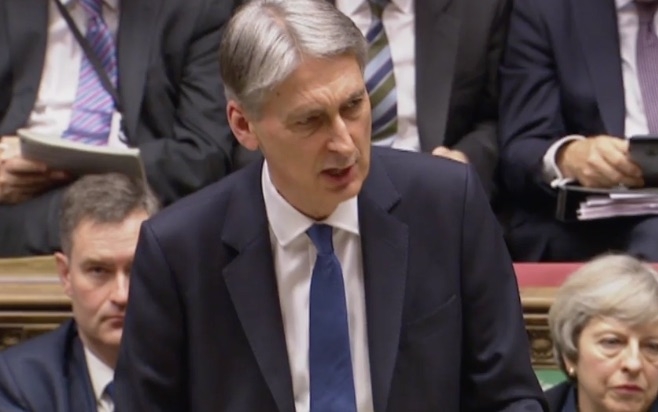The improvements in public finances make it less likely the Chancellor will be forced to raid pensions in the autumn, believes former Pensions Minister and Royal London director of policy Steve Webb.
The Chancellor expects public sector borrowing to be up to £6 billion a year lower in coming years than previously forecast thanks to a windfall from additional corporation and income tax receipts.
This means less reason to target pensions for a tax grab, as some have predicted, ahead of a major government spending review later this year.
Steve Webb said: “Too often, governments have raided pension tax relief for extra revenue to meet a short term spending crisis. Now that the public finances are improving faster than expected, there is no justification for further ‘salami slicing’ of limits on tax relief.
“Pensions should be a long-term business, not subject to annual tweaking by cash-strapped Chancellors. An improving fiscal picture means the Chancellor should refrain from any further short-term cuts.”
Sir Steve recalled that last Autumn the Chancellor said that the cost of pension tax relief was ‘eye-wateringly expensive. There have been numerous cuts to lifetime and annual limits since 2010.
Overall industry reaction to the Spring Statement was one of relief that the Chancellor did not mention or hint at any major tax changes. He did comment that a number of reviews were on the way, including areas such as Child Trust Funds, but no concrete plans were announced.
Steven Cameron, pensions director at Aegon, said: “While we weren’t expecting any ‘major’ policy announcements in a Spring Statement overshadowed by Brexit, it’s disappointing there was so little indication of what might be on the Government’s post-Brexit priority list.”
“Social care funding did receive a solitary mention but only to say it will be considered as part of a comprehensive summer spending review, suggesting the long overdue Green Paper is further delayed. The Government urgently needs to put the future funding of social care on a sustainable footing. Our ageing population deserves clarity on what the state will pay for and what individuals will have to fund themselves, based on their wealth.”
He said it was positive that the Office for Budget Responsibility reported a further improvement in the UK’s financial position since the October Budget, provided a no deal Brexit can be avoided. He said this could pave the way for a boost to public services and reduced taxes, possibly with more incentives to save and invest.
Rachael Griffin, tax and financial planning expert at Quilter, said: “Gratefully social care got a cursory nod as the Chancellor announced a three year spending review to be published alongside the next budget. Having a clear vision on how much the government is willing and able to spend on social care will enable policymaking.”
“Government need to produce clear guidelines on how much the state will contribute towards a person’s long-term care and how so the wealth management and insurance industry can create products that will help remove the rest of the uncertainty. The weight of the concern of being able to pay for care should not be underestimated.”
Philip Smeaton, chief investment officer of Sanlam UK, said: “Despite the long shadow cast by the Brexit drama, Philip Hammond came to the House of Commons with positive news on tax receipts meaning that the government is on course to have a smaller deficit in this financial year. More than anything, today’s statement had a very clear motive; to dangle the prospect of a ‘deal dividend’ in-front of those MPs who may still change their mind and vote for Theresa May’s withdrawal agreement if it comes back for a third time.”
Carol Knight, chief operations officer at TISA, said: “TISA is pleased that Government has responded to our representations on enhancing the options for holders of maturing Child Trust Funds. At this point the young person is fully responsible for their CTF and we believe it is important that the funds remain protected at maturity until a decision is made, hopefully to continue investing into an adult ISA.”
Brian Palmer, tax policy expert at the AAT (Association of Accounting Technicians), welcomed news that there will be no further mandation of Making Tax Digital (MTD) until 2021 which would come as a “great relief to many businesses and individuals alike.”

